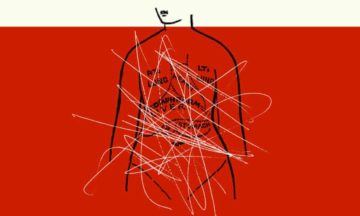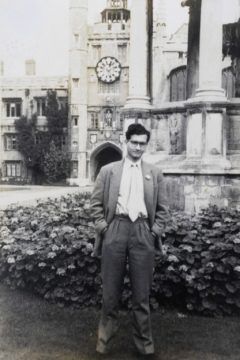Lisa Wong Macabasco in The Guardian:
 Hippocrates, the founder of modern medicine, believed that women were controlled by their uteruses. The father of modern gynecology, James Marion Sims, in the mid-19th century experimented on enslaved black women without anesthesia, convinced that they felt less pain than white women. (Until its removal in 2018, his statue stood in New York’s Central Park for over a century.) Doctors claimed that women’s suffrage would cause injury to women’s fragile bodies and diminished minds. Such examples cast an abhorrent pall over “first, do no harm”.
Hippocrates, the founder of modern medicine, believed that women were controlled by their uteruses. The father of modern gynecology, James Marion Sims, in the mid-19th century experimented on enslaved black women without anesthesia, convinced that they felt less pain than white women. (Until its removal in 2018, his statue stood in New York’s Central Park for over a century.) Doctors claimed that women’s suffrage would cause injury to women’s fragile bodies and diminished minds. Such examples cast an abhorrent pall over “first, do no harm”.
The history of medicine is every bit as social and cultural as it is scientific, and male dominance is cemented in its foundations. But even the author Elinor Cleghorn, who spent the past year immersed in the history of women’s relationship to medicine, was surprised by “just how conscious and insidious it was”, she told the Guardian. “Biological theories about female bodies were used to reinforce and uphold constraining social ideas about women.”
Cleghorn’s new book, Unwell Women, enumerates a litany of ways in which women’s bodies and minds have been misunderstood and misdiagnosed through history. From the wandering womb of ancient Greece (the idea that a displaced uterus caused many of women’s illnesses) and the witch trials in medieval Europe, through the dawn of hysteria, to modern myths around menstruation, she lays bare the unbelievable and sometimes horrific treatment of women for millennia in the name of medicine.
More here.

 A research team from the University of Massachusetts Amherst has created an electronic microsystem that can intelligently respond to information inputs without any external energy input, much like a self-autonomous living organism. The microsystem is constructed from a novel type of electronics that can process ultralow electronic signals and incorporates a device that can generate electricity “out of thin air” from the ambient environment. The groundbreaking research was published June 7 in the journal Nature Communications.
A research team from the University of Massachusetts Amherst has created an electronic microsystem that can intelligently respond to information inputs without any external energy input, much like a self-autonomous living organism. The microsystem is constructed from a novel type of electronics that can process ultralow electronic signals and incorporates a device that can generate electricity “out of thin air” from the ambient environment. The groundbreaking research was published June 7 in the journal Nature Communications. In 2013, a philosopher and ecologist named Timothy Morton proposed that humanity had entered a new phase. What had changed was our relationship to the nonhuman. For the first time, Morton wrote, we had become aware that “nonhuman beings” were “responsible for the next moment of human history and thinking.” The nonhuman beings Morton had in mind weren’t computers or
In 2013, a philosopher and ecologist named Timothy Morton proposed that humanity had entered a new phase. What had changed was our relationship to the nonhuman. For the first time, Morton wrote, we had become aware that “nonhuman beings” were “responsible for the next moment of human history and thinking.” The nonhuman beings Morton had in mind weren’t computers or  Gilles Demaneuf is a data scientist with the Bank of New Zealand in Auckland. He was diagnosed with Asperger’s Syndrome ten years ago, and believes it gives him a professional advantage. “I’m very good at finding patterns in data, when other people see nothing,” he says.
Gilles Demaneuf is a data scientist with the Bank of New Zealand in Auckland. He was diagnosed with Asperger’s Syndrome ten years ago, and believes it gives him a professional advantage. “I’m very good at finding patterns in data, when other people see nothing,” he says. Thirty years have passed since journalists were cut off from Punjab, and Punjab from the world. In June of each year, Sikhs throng to gurudwaras to observe one of the most significant of their religious holidays. On this day, when even the less observant find their way to gurudwaras, the Indian Army attacked Darbar Sahib—the Golden Temple, the Sikh Vatican —and dozens of other gurudwaras across the state.
Thirty years have passed since journalists were cut off from Punjab, and Punjab from the world. In June of each year, Sikhs throng to gurudwaras to observe one of the most significant of their religious holidays. On this day, when even the less observant find their way to gurudwaras, the Indian Army attacked Darbar Sahib—the Golden Temple, the Sikh Vatican —and dozens of other gurudwaras across the state. Nations, like individuals
Nations, like individuals In a recent study
In a recent study In a speech to the First All-Union Congress of Soviet Writers in Moscow in 1934, Central Committee secretary Andreï Zhdanov reminded those assembled of Comrade Stalin’s recent declaration that, in the Soviet Union, writers are now “the engineers of the human soul”.
In a speech to the First All-Union Congress of Soviet Writers in Moscow in 1934, Central Committee secretary Andreï Zhdanov reminded those assembled of Comrade Stalin’s recent declaration that, in the Soviet Union, writers are now “the engineers of the human soul”. In the 1950s, four decades before he won a Nobel Prize for his contributions to
In the 1950s, four decades before he won a Nobel Prize for his contributions to  On June 2 ,Bill Gates’ advanced nuclear reactor company TerraPower, and Warren Buffett’s PacifiCorp announced that they’ve chosen Wyoming as the state to launch their Natrium advanced nuclear reactor project.
On June 2 ,Bill Gates’ advanced nuclear reactor company TerraPower, and Warren Buffett’s PacifiCorp announced that they’ve chosen Wyoming as the state to launch their Natrium advanced nuclear reactor project. Five years ago this month, I attended the
Five years ago this month, I attended the  I first saw
I first saw  Coming from a long line of Hindu intellectuals and teachers, Amartya Sen enjoyed advantages and freedoms that few others did in a deeply-stratified India of the 1930s, during the waning days of the British empire. Teaching was in his blood, and from an early age, Sen was struck by the stark economic inequities he saw all around him under the British raj. Identifying and understanding the causes and effects that inequalities, like those surrounding poverty or gender, had on people’s lives would become a lifelong intellectual lodestar for the political economist, moral philosopher, and social theorist. Many economists focus on explaining and predicting what is happening in the world. But Sen, considered the key figure at the convergence of economics and philosophy, turned his attention instead to what the reality should be and why we fall short. “I think he’s the greatest living figure in normative economics, which asks not ‘What do we see?’ but ‘What should we aspire to?’ and ‘How do we even work out what we should aspire to?’” said Eric S. Maskin ’72, Ph.D. ’76, Adams University Professor and professor of economics and mathematics.
Coming from a long line of Hindu intellectuals and teachers, Amartya Sen enjoyed advantages and freedoms that few others did in a deeply-stratified India of the 1930s, during the waning days of the British empire. Teaching was in his blood, and from an early age, Sen was struck by the stark economic inequities he saw all around him under the British raj. Identifying and understanding the causes and effects that inequalities, like those surrounding poverty or gender, had on people’s lives would become a lifelong intellectual lodestar for the political economist, moral philosopher, and social theorist. Many economists focus on explaining and predicting what is happening in the world. But Sen, considered the key figure at the convergence of economics and philosophy, turned his attention instead to what the reality should be and why we fall short. “I think he’s the greatest living figure in normative economics, which asks not ‘What do we see?’ but ‘What should we aspire to?’ and ‘How do we even work out what we should aspire to?’” said Eric S. Maskin ’72, Ph.D. ’76, Adams University Professor and professor of economics and mathematics.